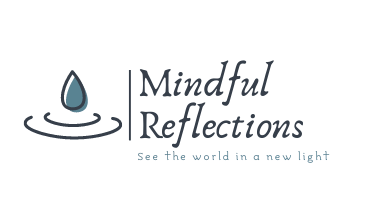What Is Birth Trauma?
What is the first thing that comes to mind when you think of childbirth? It’s not uncommon to think of childbirth as wonderful or even magical. In a lot of ways, that’s exactly what childbirth is. But unfortunately, not everyone has a great experience giving birth.
Sometimes, labor doesn’t go as planned. There are complications. The mother experiences intense distress. This can all lead to women experiencing birth trauma. Even their partners, if they were witnesses to a long and painful birth, can experience it.
Whether you’re an expecting mother preparing for childbirth or a new mother who is still suffering the effects of a difficult birth, it’s important to know exactly what birth trauma is.
A Traumatic Birth
It can be difficult to describe what a traumatic birth looks like because of how subjective trauma can be. For some people, it means feeling intense distress during labor because of pain or unexpected medical intervention. Maybe they feared for their babies’ lives and their own’ and spent a big part of their labor feeling helpless.
Alternatively, the staff might have been more hostile with them than they’d expected, and they weren’t provided with enough information about the procedure, or they felt stripped of their dignity during the process. Others might have ended up with physical injuries.
For a lot of mothers, the simple fact that the birth was not going as well as they expected was enough to make them experience childbirth as traumatic. But there are other things that impact a woman’s birthing experience beyond labor itself.
Beyond Labor
There are many reasons why some women might be more inclined than others to experience childbirth as traumatic. It’s possible they experienced little support from the people around them, whether it’s family members, their partner, or medical staff. If they had an anxious nature before the pregnancy or if they had experienced traumatic events before, then they were more likely to also experience childbirth as something traumatic.
We don’t have control over any of this. We can’t control how supportive others will be. Anxiety and previous trauma are not things we can simply erase from our lives. And that can be scary, especially for expecting mothers.
Prevention
While there is no way to confidently prevent experiencing a traumatic birth, there are some things that expecting parents can do either reduce the risk or prepare themselves for the possibility of having to cope with birth trauma.
Keeping realistic expectations about childbirth is one of them. It involves a lot of research and preparation for childbirth. Knowing the reality of it might help prevent that feeling of disconnect between expectation and reality that is behind so many women’s traumatic birth experiences.
Building a strong support network is important. You can’t control the hospital staff, but you know the people in your social circles. Finding the right friends or family members to reach out to in moments when you need support is invaluable. You can, of course, rely on your partner, but it’s important to also foster those links with friends and family. The more people you have in your corner, the more confident you will feel when navigating difficult times.
Coping with Birth Trauma
Birth trauma is not easy to cope with. It doesn’t help that it’s difficult for other people to understand what it feels like. Even other mothers might not be able to understand unless they too have experienced a traumatic birth. But birth trauma is more common than you’d think, and it’s important to know that you are not alone.
If you believe you experienced a traumatic birth, and you find yourself still coping with its effects, don’t hesitate to seek professional help. It’s possible to heal from the trauma you’ve experienced. All you need to do is make a single step forward and schedule an appointment.
To learn more about how Mindful Reflections can help, check out our Birth Trauma Therapy page.
Previous Posts
How to Cope with Postpartum Anxiety on Top of OCD
OCD fills your mind with intrusive thoughts, convinces you that devastating things will happen if...
Identifying Signs of Perinatal Mood Disorder
If you’re pregnant, or your partner is, then you’ve probably looked into the different kinds of...
When Does Postpartum Anxiety Usually Kick In
Having a child is a wonderful, special experience. We bring a baby into the world, and we raise...





